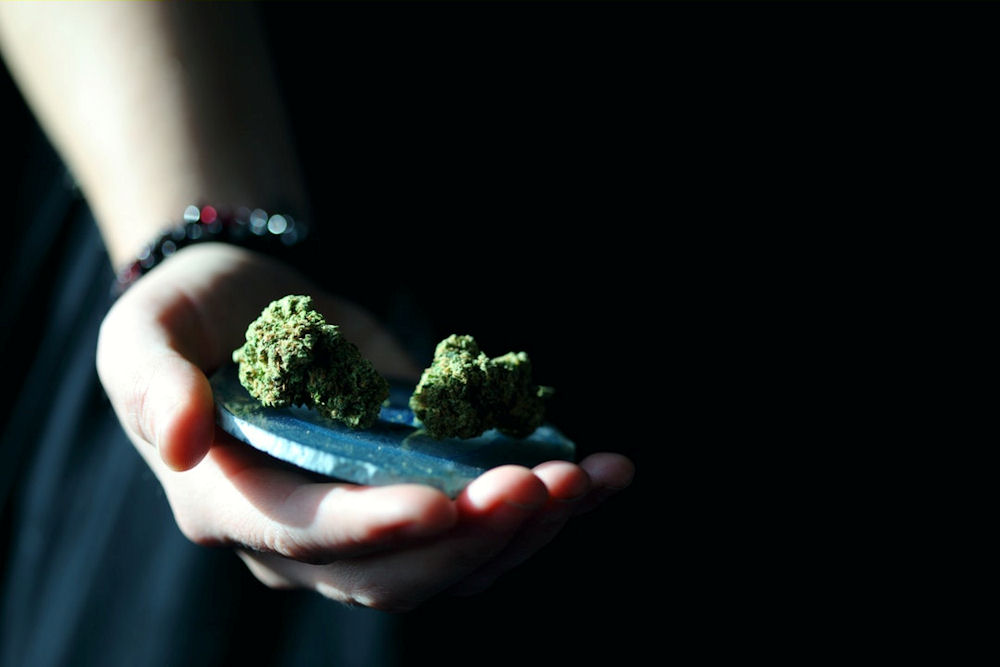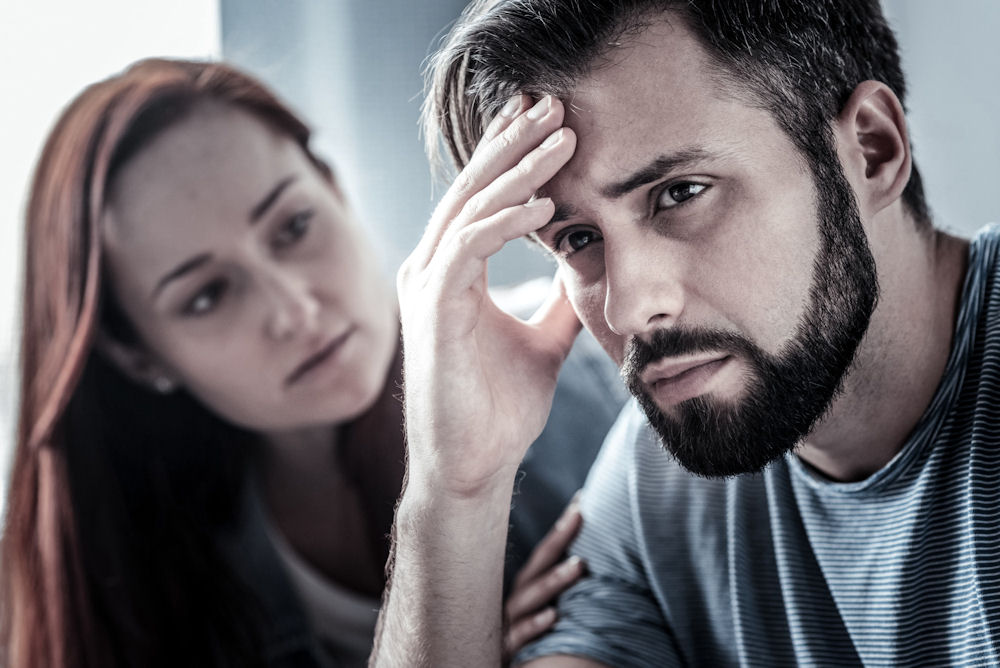Are THC Edibles Dangerous?
Without a doubt, marijuana is one of the most popular recreational drugs used in the U.S. today. Even substances derived from it, such as tetrahydrocannabinol, or THC, have become immensely popular for being able to deliver the same effect. Lately, TGC has gained an even larger following as it is the main ingredient in edible cannabis, which is either a food or a drink that contains cannabinoids.
THC is one of at least 113 cannabinoids that is found in the cannabis plant, more popularly known as marijuana. The growing popularity of these substances has aroused the curiosity of many, prompting the question are edibles addictive? Which also happens to be a burgeoning concern for drug enforcement in the US.
Table of Contents
ToggleWhat is THC?
 THC is a chemical compound found in cannabinoids that is responsible for most of marijuana’s psychological effects. THC works by connecting to cannabinoid receptors in the brain, which are associated with certain cognitive functions, including thought processes, memory, the ability to feel pleasure, coordination, and a person’s ability to perceive time. These are also the things that are affected when someone when a person takes anything infused with THC, such as edible cannabinoids.
THC is a chemical compound found in cannabinoids that is responsible for most of marijuana’s psychological effects. THC works by connecting to cannabinoid receptors in the brain, which are associated with certain cognitive functions, including thought processes, memory, the ability to feel pleasure, coordination, and a person’s ability to perceive time. These are also the things that are affected when someone when a person takes anything infused with THC, such as edible cannabinoids.
There are, however, concerns that edible cannabinoids could be somewhat more dangerous than traditional marijuana which is smoked like a cigarette. Some of the dangers include:
Delayed Onset Causing Overconsumption
Edibles are known to have a later onset or effect than smoked marijuana. This delayed onset is believed to be causing people to consume more of the edibles in the hopes that they feel the effects sooner. As with any kind of substance, there is always the alarming thought of a possible overdose when too much THC edible is consumed, although a fatal overdose is believed to be quite unlikely.
Stays in the Body Longer
It is believed that the cannabinoid content of edibles tends to stay in the body longer, as it becomes water-soluble when metabolized. Any substance that stays in the body longer than it should will have profound and prolonged effects. In substances that affect the most basic of senses, this could pose a problem, as it could take a while before the person begins to perceive things normally.
Increased Side Effects from Byproducts
The liver breaks down substances in the body so that they could be processed or disposed of easier. In the case of edibles, the liver breaks down THC into a number of byproducts, including 11-hydroxy-THC, which is a metabolite of THC. This metabolite is known to have a comparable psychoactive effect to THC, but with a faster onset. This means that although the THC content itself has been metabolized already and should no longer affect the person, the metabolic process still produced a byproduct that will still have an effect on the body.
Uncertain Dosage
As the market for edibles is now considerable, there are also numerous vendors from where these substances could be purchased. The product of these vendors, however, do not necessarily come with a consistent dosage or quantity of cannabinoids in them. Some might have lower quantities of cannabinoids in them, while others could have considerably higher dosages in the edible. This uncertain dosage is a sure way to get more than the tolerable amount of THC in the body.
Deceptively Dangerous
As edibles are mostly made to look very similar to regular food items or drinks, they could be mistaken as such and consumed by those who do not indulge in cannabinoids. This could raise a number of issues as children should not be given any dose of THC unless given by a physician. The substance could also have an adverse effect on pets that accidentally consume the edibles.
Potentially Lethal Outcome from Overconsumption
In March of 2014, Levy Thamba, a 19-year-old student at Northwest College in Powell, Wyoming, died from multiple injuries sustained from a fall after jumping from a hotel balcony. The coroner listed “marijuana intoxication” from cannabis-infused cookies as a significant condition contributing to Thamba’s death.
The coroner’s autopsy report indicated that Thamba’s blood toxicology had 7.2 nanograms of active THC per milliliter of blood. For context, state law sets a standard of 5 nanograms per milliliter at which juries in impaired driving cases can presume impairment. Thamba is believed to have suffered from serious mental impairment resulting from eating a cookie laced with 65mg of THC. This is an example of how lethal the effects of cannabinoids could be, even if people don’t die as a result of a direct overdose.
The following year, 23-year-old Colorado native Luke Goodman fatally shot himself after ingesting five times the recommended dose of edibles. Goodman apparently consumed the large quantity because he did not immediately feel the effects after initially consuming a smaller quantity. Goodman’s mother said that the 23-year-old was well-adjusted and did not suffer from depression, pointing to the overconsumption of edibles as the primary reason for Goodman’s suicide.
Potentially Harmful Behavioral Changes
Other than a warped sense of reality which could lead to self-harm, people could also become a danger to others when they suffer from mental impairment due to THC altering their perceptions. This is particularly true for people who might be more susceptible to the mind-altering effects of THC than others.
There are many cases where people who are not normally violent or don’t have a history of violence suddenly becoming belligerent or abusive when under the influence of substances such as alcohol or prescription medications. This effect is also a possibility with edibles, as the THC content could affect the person’s personality and perception of the environment.
High Risk of Complications from Mixing
It is not uncommon for people who indulge in substances to take them with other things, such as alcohol. This mix could not only amplify the effects of the substance on the body, but it could also worsen the potential damage arising from the substance itself. Depending upon the effect on the person using it, THC could increase the effect of alcohol or other substances it is taken with, particularly those with perception-altering properties.
Even for those who do not become violent or suffer from the outward effects of mixing substances, there is always the possibility of increased organ damage resulting from the combination. It bears noting that even when metabolized, THC produces metabolites that remain in the body and still have an effect after some time. These remnants could interact with other substances taken when the person mistakenly thinks that the THC is already out of the body.
Can You Get Addicted to Edibles?
 Many see edibles that contain THC as nothing more than a food item that gives a good feeling after being eaten. This false perception is what pushes fans of edibles into addiction territory without them even realizing it. Even if the person does not immediately develop a dependence on it, edibles are known to deceive people into overconsumption without them even knowing it.
Many see edibles that contain THC as nothing more than a food item that gives a good feeling after being eaten. This false perception is what pushes fans of edibles into addiction territory without them even realizing it. Even if the person does not immediately develop a dependence on it, edibles are known to deceive people into overconsumption without them even knowing it.
In the case of the student from Wyoming who jumped off a balcony after consuming an edible, the effect of THC was massive because the student consumed the entire cooking laced with it, instead of just a portion of it. By consuming the entire food item, which is a normal practice when people eat, a greater amount of THC is introduced into the body, leading to severe effects as well. People need to understand that getting addicted to edibles is faster than asking the question “can you get addicted to edibles?”
What are the Side Effects of Edibles with THC?
Edibles with THC are particularly dangerous because these are substances that are not properly regulated yet. This means that not enough studies have been done on the scope of effects that it could have on people. The health risks of edibles are typically also related to how people react to them after consumption. Although different people could react differently, there are a number of general reactions that appear to be common in those who take edibles, including:
- Varying degrees of confusion
- Persistent thirstiness
- Dry mouth
- Problems with concentration
- Significantly slower reaction time
- Dry eyes
- Fatigue
- Persistent lethargy
- Headaches
- Varying degrees of dizziness
- Tachycardia (increased heart rate)
- Anxiety
- Sudden mood swings
There are also some severe reactions to consuming edibles, and while these reactions are uncommon, they do happen with such severity that could easily become life-threatening.
- Vivid hallucinations
- Severe paranoia
- Panic attacks
- Nausea
- Vomiting
- Sudden drop in respiratory rate
- Acute psychosis
- Delusional thoughts
- Impaired decision-making ability
- Depersonalization
What are the Withdrawal Symptoms Associated with THC?
The withdrawal symptoms associated with edible THC addiction are the same as those associated with marijuana addiction. These symptoms generally come out when the user abruptly stops using anything with cannabinoids or even when there is a reduction in use. The symptoms include:
- Irritability
- Bouts of anger
- Unprovoked aggression
- Anxiety
- Unexplained nervousness
- Insomnia
- Decreased appetite
- Restlessness
- Varying degrees of depression
- Headaches
- Nausea
- Vomiting
- Stomach pains
- Chills
- Fever
- Profuse sweating
- Tremors
What is the Timeline for Edible THC Withdrawal
24 to 48 Hours After Last Use
The initial symptoms start to manifest a day or so after the last use. These symptoms are usually mild but could steadily increase in severity in just a matter of hours. The most common symptoms during this period include stomach pains, irritability, headaches, insomnia, loss of appetite, and restlessness.
Two to Six Days After Last Use
Most, if not all, of the withdrawal symptoms, tend to build in intensity over a period of a few days. The symptoms tend to peak during this period, and once the peak period ends, the symptoms tend to steadily decrease in severity.
Three Weeks After Last Use
The cannabinoid-related withdrawal symptoms tend to last for up to three weeks, with the worst of it mostly during the first week. Most of the symptoms steadily decrease in intensity during this period until all that is left is the urge to use marijuana or any cannabinoid-laden substance again.
First City Recovery Can Help with THC Addiction and Rehab

Dependence on any kind of substance is no different from being imprisoned. There is no freedom for as long as substance abuse continues to dictate the daily needs of a person. We here at First City Recovery understand this, and we make it our top priority that the people we help realize this too.
Let us show you a better way to live, and how to make sure that this better way of living is something that lasts a lifetime. Call us now.

MD, Psychiatrist
Dr. Vahid Osman, MD is a psychiatry specialist in Indianapolis, IN.
Dr. Osman completed a residency at Austin State Hospital. He has over 32 years of experience in Psychiatry & Behavioral Health. He is board certified by the American Board of Psychiatry and Neurology.




